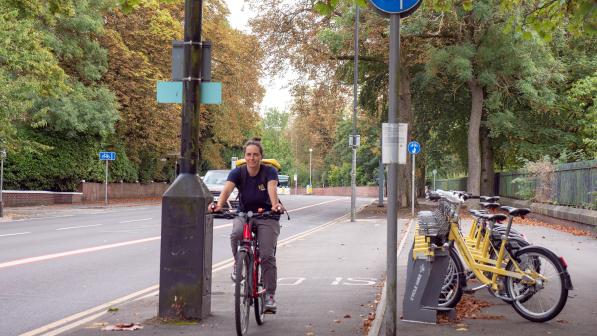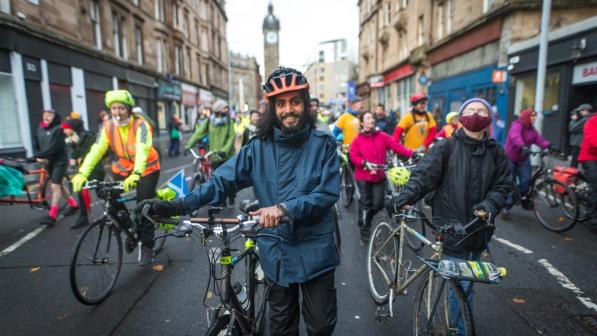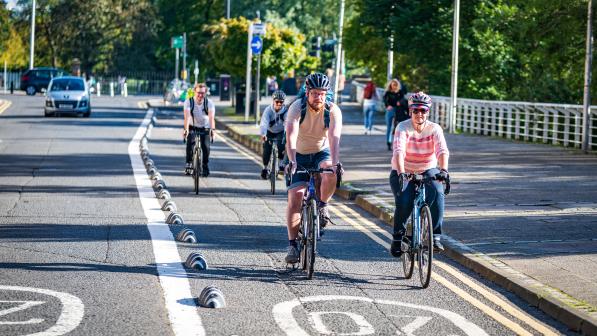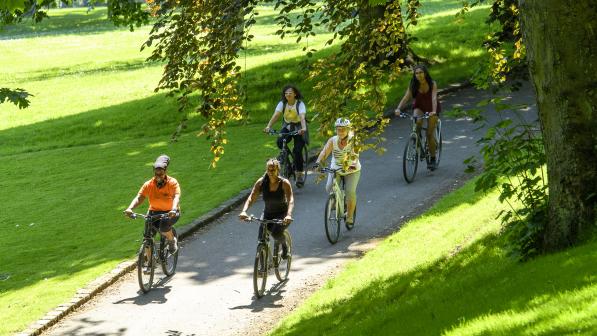Fuel duty cut is a huge missed opportunity to redirect £2.4bn to decarbonise transport

- Analysis commissioned by Cycling UK shows the 5p cut – a total of £2.4bn annually – represents a huge missed opportunity to decarbonise transport by 1.5 times the footprint of entire aviation industry
- The relief is equivalent to three times current active travel spending of £738.5m, and investing in world-class walking and cycling infrastructure would have far greater impact
- The intended short-term financial relief is unfairly distributed, not guaranteed to reach motorists, and may undermine wider health, net-zero and national security priorities
A new report published today (Thursday, 28 April) reveals the 5p cut in fuel duty is a missed opportunity to cut fuel-dependence and decarbonise transport in the UK by using the tax revenue given away to triple investment in active travel to £2.4bn over 12 months.
At the same time, the projected savings made amount to just £35.78 per capita, a sum unlikely to have a noticeable impact on struggling households over the course of a year.
The UK government cut fuel duty by 5p per litre in response to the cost-of-living crisis, effective from March 2022 to March 2023.
Cycling UK, the UK’s cycling charity, commissioned the report by Walking Cycling Climate Action Ltd to examine whether equivalent spending in active travel infrastructure would offer better value for money by replacing high-carbon miles driven with low-carbon miles walked and cycled. The report also quantifies what the alternative investment would look like in each nation, given that investment in cycling and walking is devolved.
While the fuel duty cut is intended to provide immediate, short-term financial relief to consumers, the report outlines concerns that the benefits may not in fact be passed on to motorists. The authors warn up to 50% of the subsidy may be retained by fuel retailers, thus never reaching the drivers it’s designed to help.
The total savings of £2.4bn are equivalent to three times the current designated active travel infrastructure investment of £738.5m per year across the UK.
According to the report, tripling investment in active travel would translate into better value for money in three ways:
The financial relief would be distributed more fairly between families and individuals, regardless of whether they drive, if the money was spent towards creating world-class walking and cycling infrastructure.
It would also result in a carbon reduction worth 1.5 times the footprint of the entire aviation industry in the UK – a cut of 57.4 megatonnes of CO2-equivalent.
Redirecting high carbon subsidies to active travel spending would also deliver on big ticket whole-economy issues, including the economy, health, national security and net zero targets.
Duncan Dollimore, head of campaigns and advocacy at Cycling UK, comments:
“The long- term solution to rising prices at the pumps is to reduce our fuel-dependency by investing in public transport and active travel to give people realistic alternatives to jumping into their car.
“Calls for greater investment in active travel are sometimes rebuffed with claims that there isn’t enough money, but as this report shows, there was money available to revolutionise sustainable transport.
“But instead of investing to reduce car-dependency the Chancellor has surrendered £2.4 billion of tax revenue, half of which could go to line the pockets of fuel retailers rather than the public.
“In addition, people on the lowest incomes and most affected by the cost-of-living crisis are also less likely to drive, so won’t benefit at all from this inequitable carbon subsidy. It’s vital that politicians realise that the public want long-term sustainable transport solutions, and the time to act is now.”
The majority of all journeys made (71% in England) are under five miles, and with better investment in active travel infrastructure, some of those could be shifted from a car journey to one walked or cycled.
Ahead of next week’s elections, Cycling UK is calling on people to ask their candidates what they’re doing to secure greater investment in and quicker delivery of safe cycling and walking routes.
Cycling UK is encouraging voters to support its election campaign by asking politicians to commit to supporting active travel where they live.
Notes to editors
- Cycling UK, the UK’s cycling charity, imagines a world where the streets are free of congestion and the air is clean to breathe, where parents encourage their children to cycle to school and everyone shares the exhilaration of being in the saddle. For more than 140 years, we’ve been making our streets safer, opening up new traffic free routes and inspiring more people to cycle more often. www.cyclinguk.org
- The full report by Jess Read, produced by Walking | Cycling | Climate Action Ltd is available for download
- More information on Cycling UK’s elections campaign
- According to figures from the Department for Transport, 71% of trips made in England in 2020 were under five miles, but cycling only accounts for less than 2% of journeys.
Press contact information
For more information, please contact the national Cycling UK press office. Due to the restrictions caused by the coronavirus outbreak, currently the main press office number (01483 238 315) is not being monitored. If you would like to speak to a member of the press office during working hours (0900 - 1700) please email [email protected]. Out of hours, call 07786 320 713








